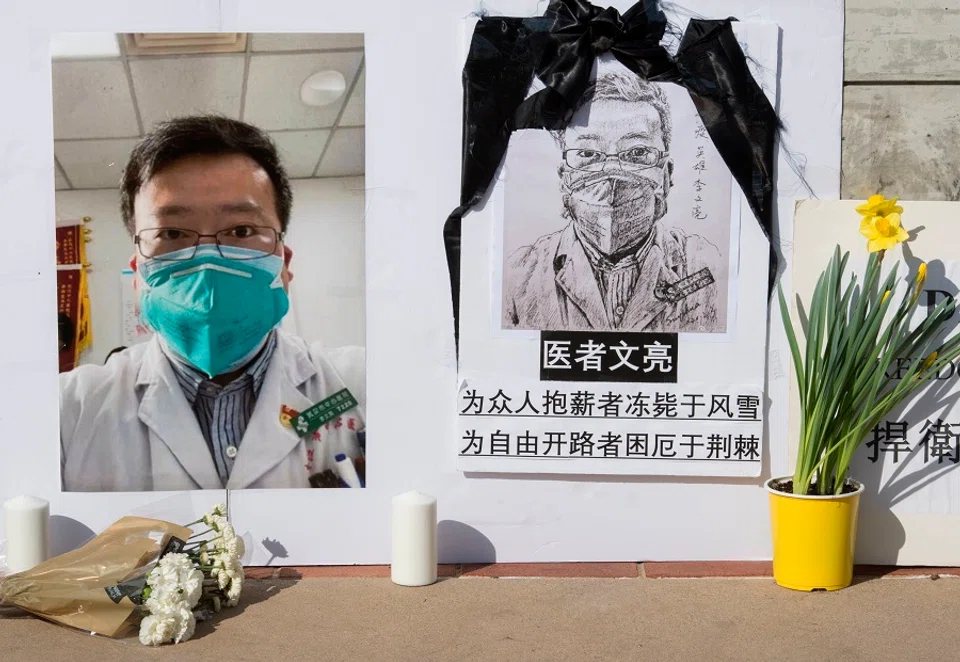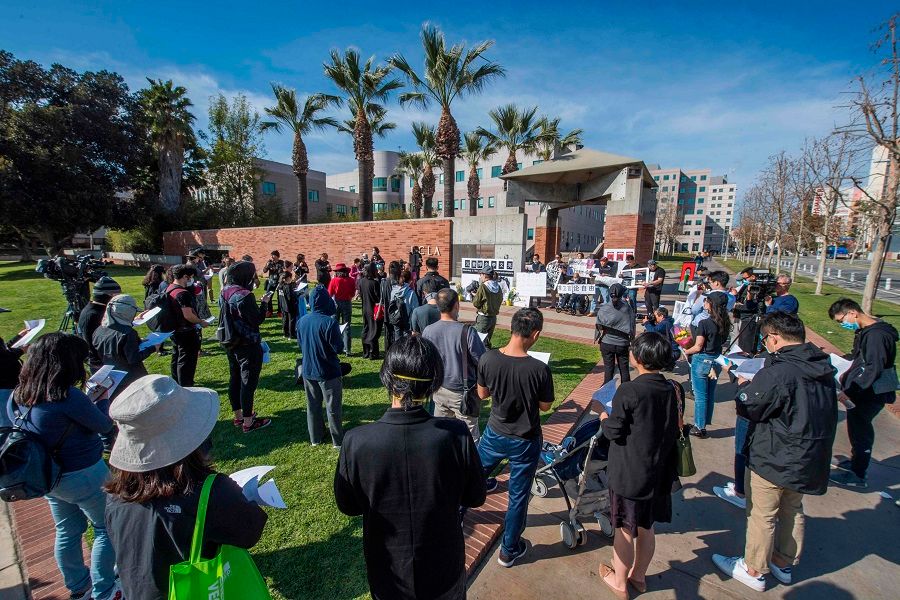Chinese netizens: Is this how the Li Wenliang story should end?

Close to a month and a half after Covid-19 whistle-blower Dr Li Wenliang's death, an investigation report was released by Beijing authorities yesterday (19 March). The police also withdrew the reprimand they had issued him. However, the report failed to address the alleged concealment of the outbreak - the issue that people were most concerned with - and merely put the blame on the police station that had punished Li. The Chinese public was greatly disappointed by this outcome and took to the internet in great displeasure.
Evidently, the authorities are set on painting the Li Wenliang incident as a tool used by hostile forces in their battle against the authorities.
In an interview with Chinese state media Xinhua News Agency, an official in charge of the investigation team emphasised that Li was a Chinese Communist Party member and not what "hostile forces" described as an "anti-establishment hero" or "discoverer of truth". Evidently, the authorities are set on painting the Li Wenliang incident as a tool used by hostile forces in their battle against the authorities. The official categorically warned that "those with ulterior motives" and who wanted to "fan the flames, deceive and sow discord in society" would not get their way.
Experts interviewed also felt that the failure to address the deeper problems behind Li's incident not only failed to meet the public's expectations, but also did nothing to improve the public health, epidemic prevention, and social management issues exposed by the outbreak.

To recap: the late Dr Li Wenliang was an ophthalmologist at the Central Hospital of Wuhan. On 30 December last year, he sent the message "Seven confirmed SARS-like cases from the Huanan Seafood Wholesale Market" to a WeChat group. Henceforth, he was considered one of the earliest whistle-blowers of the outbreak. However, he was charged and punished by the Wuhan police for "spreading rumours", and passed away a month later after being infected by the Covid-19 coronavirus. This incident triggered public furore and drew the attention of international media.
The deputy head of the police station who instructed Li's reprimand was given a demerit point in his record, while the police officer who issued the reprimand was given a warning.
Under immense pressure from public opinion demanding Li's vindication and holding relevant officials accountable, the Central Commission for Discipline Inspection sent an investigation team to Wuhan on the day of Li's death to conduct a full investigation on issues raised by the people in connection with Dr Li Wenliang.
The team released an account of its findings yesterday, making clear the timeline of Li's incident - from the time Li sent a warning message on WeChat, to his arrest by the police, him getting infected by the coronavirus and the efforts made to save him. The report concluded that the police station had "issued improper instructions" and followed "irregular" law enforcement procedures. The team recommended that the Wuhan authorities ensure that the police withdraw their reprimand against Li and discipline the relevant personnel involved. The Wuhan police dutifully did as told. The deputy head of the police station who instructed Li's reprimand was given a demerit point in his record, while the police officer who issued the reprimand was given a warning.
Many Chinese netizens were disappointed and upset by the report. Some netizens said, "We waited for over a month just to see this?" Others fired a string of questions, "Who reported Li Wenliang? Who demanded the police station to punish him? Who disallowed the doctor to speak the truth? Why weren't these mentioned in the report?" Yet others sarcastically remarked, "After investigating for such a long time, it is still more convenient to put the blame on the grassroots, isn't it?"
Someone quoted a Global Times interview with a doctor from the Central Hospital of Wuhan saying that the hospital had initially planned to fire Li, while other doctors were warned by the higher-ups to "not wear a mask, keep quiet, or be fired like Li Wenliang".

The official in charge of the investigation concluded that while Li "did not have the subjective intention of disturbing public order", in a situation where the cause of the Covid-19 outbreak had not been ascertained, he spread his message without verifying it. He also said that apart from summoning Li for a talk to understand the situation, the hospital did not "punish or revoke his doctor's license".
The official's comments were rebutted by netizens immediately. Someone raised a Global Times interview with a doctor from the Central Hospital of Wuhan in which the latter said that the hospital had initially planned to fire Li, while other doctors were warned by the higher-ups to "not wear a mask, keep quiet, or be fired like Li Wenliang".
Professor Ren Jianming of Beihang University's School of Public Administration told Lianhe Zaobao in an interview that the public had had high expectations for the investigation of Li's incident. Thus, when the findings were released after over 40 days of investigation only contained a mere recommendation to hold the police station accountable, the public understandably found it to be "extremely different from what they have expected and utterly difficult to understand and accept".
Prof Ren analysed that the public had hoped that the investigation would help them understand the crux of the matter, namely, if the outbreak was covered up in its early stages, if the system of reporting the outbreak was open and transparent, and if relevant departments have truly been responsible in their duties.
